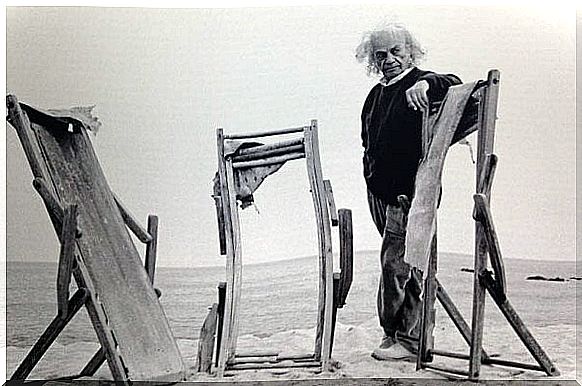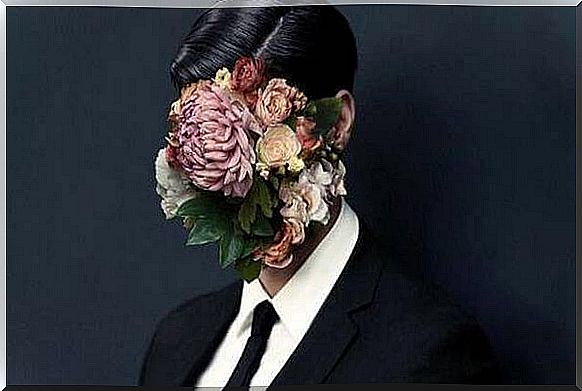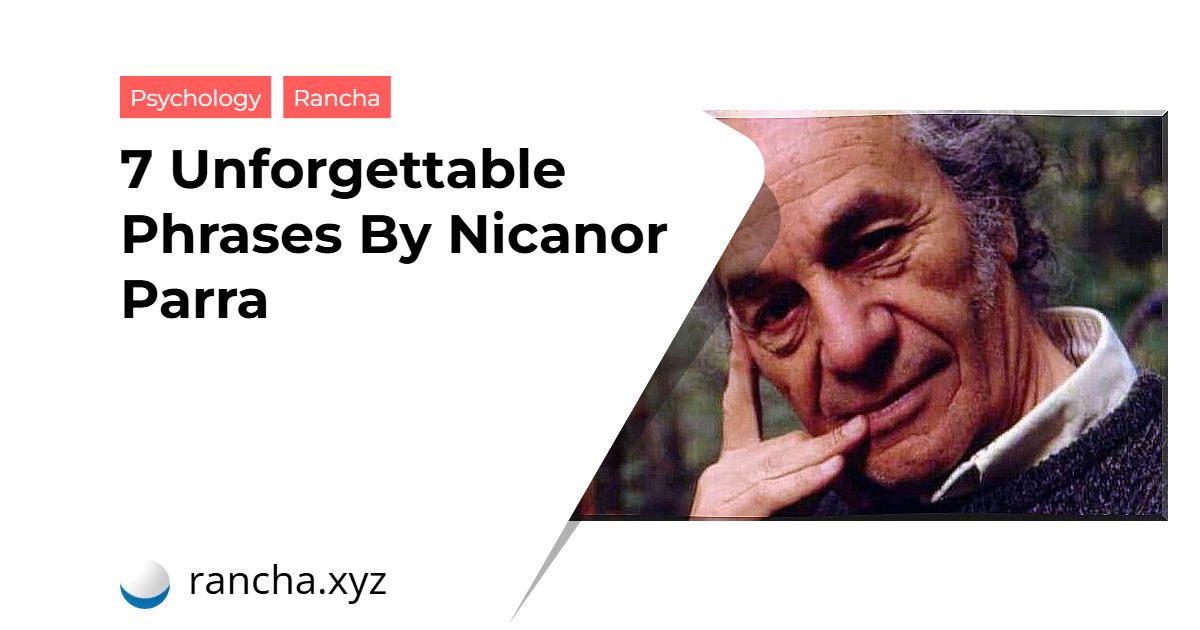Nicanor Parra’s sentences do not bring us the thoughts of a poet, but of an anti-poet, as he called himself. He was a man who lived for over a century in the world of letters, and who never ceased to amaze us with his particular way of seeing the world and expressing himself.
The antipoet was born on September 5, 1914, in San Fabian de Alico, Chile. Son of a musician who was also a primary school teacher, and a seamstress and weaver of peasant origin, since he was a child, he was very encouraged to learn popular art. His parents also transmitted him a strong social conscience, which was reflected in many of the phrases that are authored by Nicanor Parra.
He won the National Literature Prize in 1969, the Reina Sofia Prize for Poetry in 2002 and the Cervantes Prize in 2011. He was one of the eternal candidates for the Nobel Prize for Literature, but he never received it. He died at 103 years old, surrounded by all the love of his readers. These are some of Nicanor Parra’s most famous phrases.
One of Nicanor Parra’s quotes on statistical issues
Antipoetry is characterized by breaking away from traditional poetry. It talks about different themes, with non-traditional language structures. It is a current that intends to demonstrate that poetry does not always need to be made with complex language games.

Nicanor Parra’s phrases are also expressions of these antiverses and antipoetry. This is one of them: “We have two loaves. You eat two. I don’t eat any. Average consumption: one loaf per person”. He refers, with irony and humor, to the contradictions of statistics applied to the social.
the answer of the oracle
One of the aspects most explored by Nicanor Parra in his antipoetry is that of the absurd. This is perfectly evident in several of his antipoems and in his sentences. This one, for example, makes reference to a wonderful nonsense: “Answer of the oracle: whatever it is, you will regret it”.
This is a nice and subtle way of saying that, unfortunately, no matter what happens or how we act, there will always be something imperfect, something flawed to some extent. Doing something will always mean not doing other things for you. This, somehow, almost always leads to some degree of regret.
guilt and forgiveness
Here is a beautiful verse that has become one of Nicanor Parra’s most popular and famous phrases. He says: “Stealing flowers under the moonlight, I apologize to the four winds, but I do not plead guilty.” Flowers that are stolen in the dark are made of light, and for them no forgiveness is asked.

The interesting thing about this sentence is the second statement: that whoever asks for forgiveness can still not plead guilty. It’s a nice way to state that even if you’ve done some harm, there isn’t necessarily guilt or regret for what you’ve done. A statement for those who act with conviction, being aware that eventually their actions may affect others in unanticipated ways.
Do countries exist or is there the illusion that they exist?
The political theme is recurrent in Nicanor Parra’s antipoetry. He is not exactly a defender of some cause, but he could be characterized as an informer of the contradictions of power. His mood is of anarchist ancestry: neither from the right nor from the left, but from the side of the human being and of reason.
Another of Nicanor Parra’s great phrases tells us the following: “We believe we are a country, but the truth is that we are just a landscape”. This statement is a clear statement of rejection of man-made administrative political concepts. Land does not demarcate countries naturally, men do. And in reality, there is only landscape.
the names of things
An antipoet also reflects in his texts on what poetry is made of and what the poetic is. One of the definitions about the role of the poet is wonderfully expressed in this sentence: “The poet does not keep his word if he does not change the name of things”.

This means that poetry is, above all, rename the world and reality. Rename physical and mental objects. In other words, saying things in a way that hasn’t been said by anyone yet, renewing the look at what already exists.
These are just some of the wonderful phrases of Nicanor Parra, the anti-poet. His departure was felt in his native land, and around the world many people mourned his departure. But the testimony of a man who made his word a true tool for criticism and creation remains for the posterior.
 rancha.xyz Be free to choose their own route to self-knowledge, health and balance of body and soul.
rancha.xyz Be free to choose their own route to self-knowledge, health and balance of body and soul.




